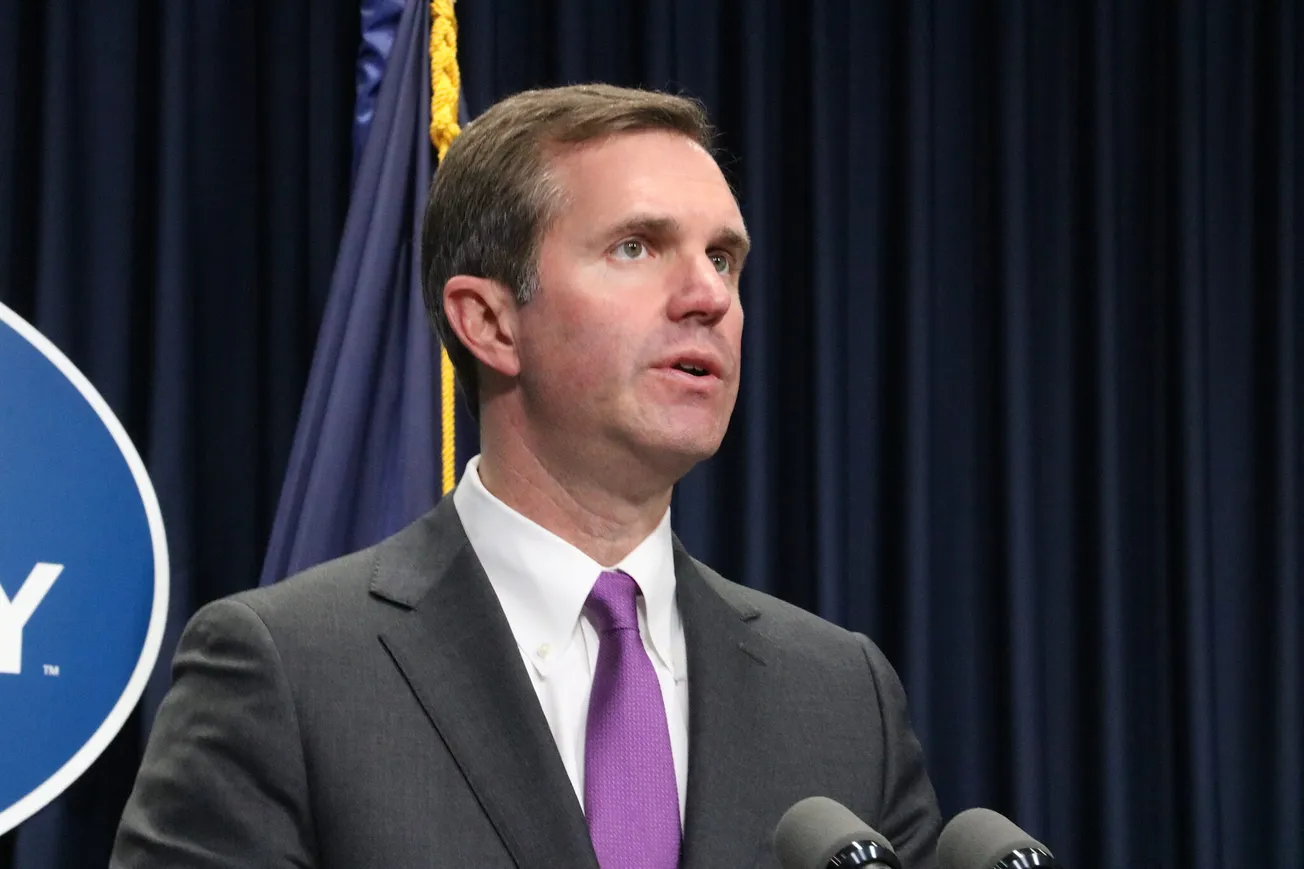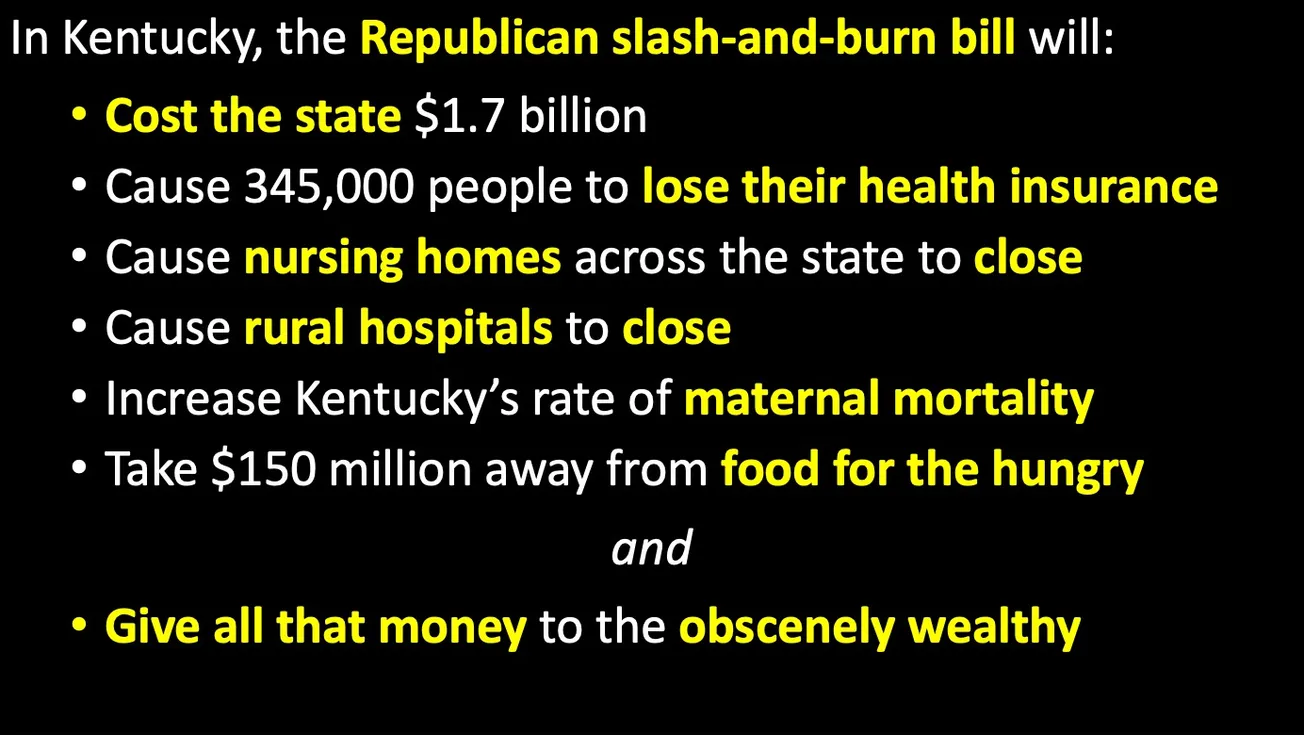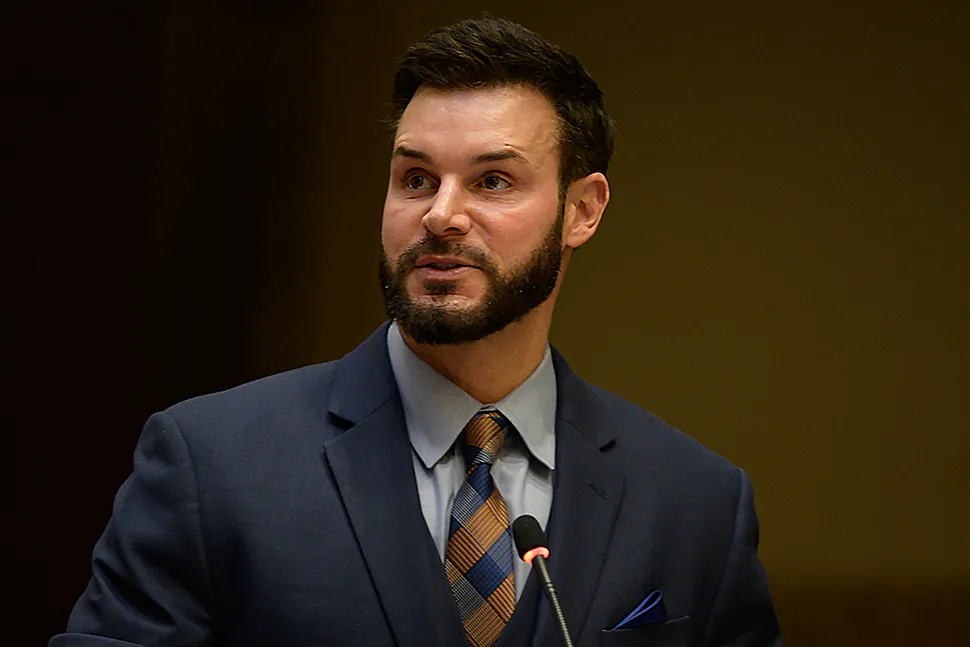— by Liam Niemeyer, Kentucky Lantern —
Democratic Kentucky Gov. Andy Beshear has gone to court to block what the lawsuit calls the “latest power grab” by the GOP-controlled legislature.
At issue is a new law that curbs the executive branch’s authority to make regulations. The bill was a priority for the conservative group Americans for Prosperity which is pushing the measure in multiple states and the U.S. Congress.
In a complaint filed in Franklin Circuit Court on March 28, attorneys for the Office of the Governor and the Public Protection Cabinet wrote House Bill 6 is unconstitutional because it essentially hands over control of a state executive branch function and power — issuing and implementing regulations — to the legislature.
Attorneys for the plaintiffs write the debate over HB 6 on the House floor “clearly shows the legislative branch is intentionally violating the strict separation of powers” in the Kentucky Constitution. Attorneys pointed to comments made by Rep. T.J. Roberts (R-Burlington) on the House floor last month in which Roberts said “they better ask us for permission before they engage in executive branch lawmaking.”
Franklin Circuit Court Judge Phillip Shepherd held a hearing on the case Wednesday morning to consider the plaintiffs’ request to block the law temporarily. Shepherd granted counsel for the Legislative Research Commission (LRC) — the administrative body of the legislature that has an employee listed as a defendant in the case — more time to file a legal memo on the request from plaintiffs.
A request for comment sent to a spokesperson for Republicans in the Kentucky House of Representatives was not immediately returned.
The Republican-controlled legislature passed HB 6, dubbed the REINS Act or Regulations from the Executive in Need of Scrutiny, over a veto by Beshear in the final days of this year’s legislative session. The legislation went into immediate effect on March 27 because of the bill’s emergency clause.
HB 6, primarily sponsored by Rep. Wade Williams (R-Madisonville), would prevent executive branch agencies from filing, amending, or repealing regulations unless the regulations meet one of six prerequisites. Wade in a previous statement touted the bill as a way to put “common sense boundaries on the regulatory powers of unelected government employees.”
Those prerequisites include that the regulation will not cost more than $500,000 over two years to implement; is needed immediately to “to meet an imminent threat” to public health, safety, or welfare; is needed to prevent the loss of funds or meet a deadline established in laws or regulations; or is needed relating to the licensure of health facilities and services.
The lawsuit names Emily Caudill, the regulations compiler for the LRC, as the defendant. Attorneys for the governor wrote HB 6 gives Caudill the power to determine whether regulations can be filed including when the legislature is not in session.
The governor also says HB 6 restrictions could prevent the implementation of laws passed by the legislature this year, such as creation of a Parkinson’s Disease registry that state officials estimate could have an upfront cost of at least $635,000. Another law that the complaint states could be impacted is a move to license retailers who sell nicotine which has regulatory costs that could reach into the millions of dollars, exceeding the limits in HB 6.
The passage of HB 6 was applauded by the conservative advocacy group Americans for Prosperity-Kentucky (AFP-KY), a part of a network of political groups affiliated with businessmen Charles Koch and the late David Koch.
AFP-KY State Director Heather LeMire said in a statement that while the governor can “grandstand,” his lawsuit claims are off base.
“If the governor or his administration had read the law, they would know that it has a stipulation for regulations that come out of legislation for the executive branch to promulgate these regulations, as well as a generous stipulation for the governor’s emergency powers,” LeMire said. “It is clear that Governor Beshear wants to avoid accountability and make policy, but that is the job of the legislature. If he is set on being a policymaker, we welcome his resignation so he can run for the General Assembly in November of 2026.”
She said the legislature gives the governor the power to issue regulations through a specific chapter of state law.
--30--








